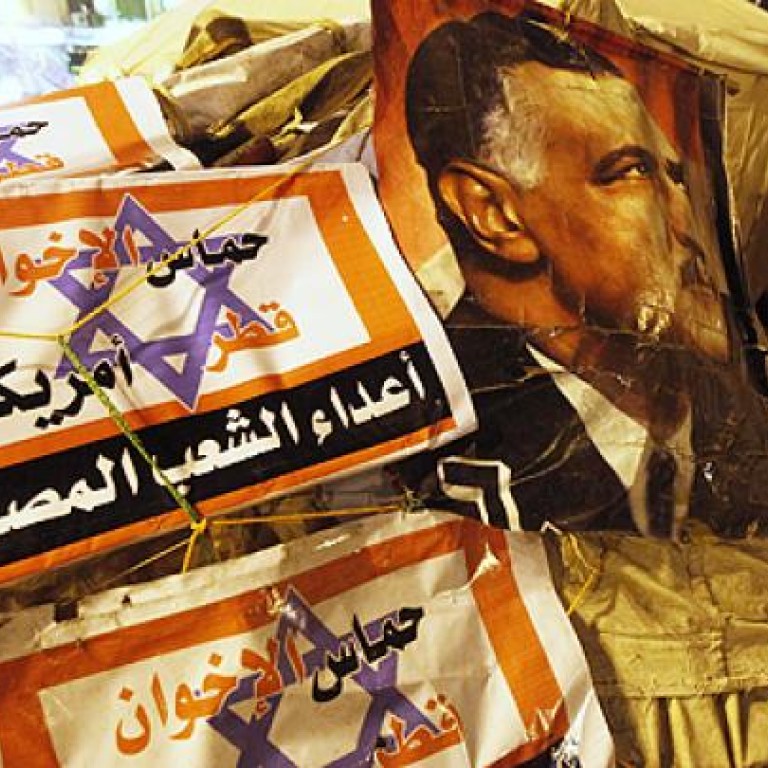
Egypt braces for mass protests after deadly unrest
Planned marches will head to Cairo’s Tahrir Square and to the presidential palace on Friday, while rallies have also been organised in several provinces.
Egypt braced for mass rallies on Friday against President Mohammed Mursi, after rival factions condemned a week of deadly violence and pledged support for a national dialogue.
Planned marches will head to Cairo’s Tahrir Square and to the presidential palace, while rallies have also been organised in several provinces.
The opposition National Salvation Front, which called for the demonstrations, is demanding the formation of a new national salvation government and the amendment of the Islamist-drafted constitution, which polarised the nation when it was passed in December.

The Islamist president is accused of betraying the revolution that brought him to the presidency and of consolidating power in the hands of the Muslim Brotherhood.
In a statement, the NSF said Egyptians would demonstrate nationwide against “a regime that seeks to impose its will on the people and is managing the country in the interest of the Brotherhood.”
On Thursday, rival factions condemned the violence and pledged support for a national dialogue.
Top Islamic scholar Grand Imam Ahmed al-Tayyeb chaired talks between liberal opposition heads, Islamists, youth groups, independents and church members at the headquarters of Al-Azhar, Sunni Islam’s highest seat of learning.
They signed an Al-Azhar document vowing to support “a serious dialogue” and “condemn all forms of violence and incitement to violence,” and stressing “the responsibility of the state and its security apparatus to protect citizens.”
Opposition and NSF leader Mohamed ElBaradei, a former UN nuclear watchdog chief, praised the Al-Azhar talks.
“We come out of these talks with some sort of optimism” despite “the difficult challenges ahead,” he told reporters.
“We will do whatever we can with goodwill to build the trust of the Egyptian people.”
Saad al-Katatni, head of the Brotherhood’s Freedom and Justice Party, stressed the need for compromise.
There is no solution to the problems in our path to democracy without dialogue
“There is no solution to the problems in our path to democracy without dialogue... Dialogue must have guarantees but no preconditions,” Katatni told reporters.
“All topics are up for discussion and all participants said they were ready for compromises.”
It remains to be seen whether the Al-Azhar document will carry any weight on the street.
Even with few concrete points agreed, Thursday’s talks marked a blow for Mursi whose calls for dialogue were snubbed by the opposition only last week.
In a statement, the presidency welcomed the document as “an important step on the road to re-establishing stability.”
The interior ministry said it respected “the right to peaceful protest,” but urged all political forces to ensure “a peaceful and civilised” day, a spokesman said.
Egypt has been gripped by unrest since rallies last week marking the second anniversary of the uprising that toppled president Hosni Mubarak.
The protests turned violent on Saturday after a Cairo court sentenced 21 residents of the canal city of Port Said to death for their involvement in football-related violence last year.
Friday’s protests will mark one year since the Port Said clashes that left 74 people dead.
